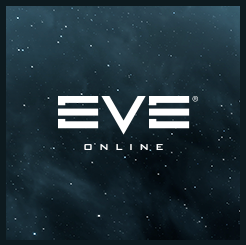- Much of this guide is adapted from the official forum post by CCP Snorlax, which can be found here. Questions about the information found in this article are best asked on the official EVE forums.
While Linux is not officially supported by CCP, a side project by CCP Snorlax has yielded a native Linux application that downloads a prebundled version of Wine (also built by CCP Snorlax) which allows Linux to run the EVE launcher more easily. The launcher requires a 64-bit installation of Linux, but should work with most distributions.
Basic Setup

(Terminal commands are displayed in code blocks)
- Download the launcher binaries either manually (found here) or via terminal command:
- Note: These can be put wherever the user prefers, but the home directory
~/is recommended. wget https://binaries.eveonline.com/evelauncher-1514997.tar.gz - If this file no longer exists or is outdated, check for an updated link in CCP Snorlax's forum post which should be stickied here.
- Note: These can be put wherever the user prefers, but the home directory
- Extract the compressed files (
.tar.gz)tar -xvf evelauncher-1514997.tar.gz
- Move to the newly-extracted folder
cd evelauncher
- Set the script as being executable
chmod u+x evelauncher.sh
- The launcher can now be run via terminal command.
./evelauncher.sh - This is a good point to check if the launcher works and whether any errors are output to the terminal before continuing to any more advanced steps.
Custom Launcher Shortcut
(The following additional steps are not strictly necessary, but can make running the launcher more convenient through the use of a custom launcher shortcut.)

- Create a symbolic link (symlink) to the script in the user binaries folder
ln -s /Path/To/evelauncher.sh /usr/bin/evelauncher
- And make it executable
chmod u+x /usr/bin/evelauncher
- Download the icon file
wget https://wiki.eveuniversity.org/images/a/af/Evelauncher.png
- Move the icon file to the correct directory
sudo mv Evelauncher.png /usr/share/pixmaps/
- Create the launcher file with your preferred editor
sudo $EDITOR /usr/share/applications/eve.desktop
- Insert the following text and then save it:
[Desktop Entry]
Name=EVE Online
Comment=EVE Online by CCP Games
Exec=evelauncher
Icon=Evelauncher
Terminal=false
Type=Application
Categories=Game;
- Run the game through the newly-created launcher shortcut!
Using a Custom Wine Version
The copy of wine bundled with the launcher is quite outdated, but thankfully you can use your distribution's own wine runtime instead which gives access to things like DirectX11 support.
- Note: Make sure to untick 'Run clients with DX9' if you want to use DX11.
- Open the launcher settings with the small "E" symbol in the top right, tick "Use custom Wine", and in the box below it enter the path of your wine executable, eg.
/usr/bin/wine
- Remove EVE's existing wine and wineenv folder
rm -Rd ~/.eve/wineenv ~/.eve/wine
- Reopen the launcher and start the game as normal.
- EVE's wine prefix should rebuild itself with the custom version.
Troubleshooting
Incompatible OpenSSL library
The EVE launcher requires the 1.0.x version of the openssl library in order to function, however, some newer versions of Linux distributions and those that use rolling releases include the 1.1.x version by default (this will be evident by the launcher simply not appearing at all when the script is run), so some extra steps to install the older compatibility library may be necesssary.
- Note: The following example is for Ubuntu - paths and package names will likely be different on other distributions.
- Download the older library from your distribution's repos
sudo apt-get install libssl1.0.0
- Add symbolic links to the libraries in the launcher's folder
ln -s /lib/x86_64-linux-gnu/libssl.so.1.0.0 /Path/To/evelauncher/libssl.so ln -s /lib/x86_64-linux-gnu/libcrypto.so.1.0.0 /Path/To/evelauncher/libcrypto.so
This should correct the issue temporarily, but the symlinks will be removed when the launcher is updated. A solution to this is to make your own script which checks for the existence of the symlinks, remakes them if they are missing and then triggers the launcher's script.
- Create the wrapper script in your preferred editor
- Note: The wrapper script cannot be located in the launcher's own folder, or it will be deleted when the launcher updates.
$EDITOR /Path/To/Wrapper/evewrapper.sh
- Insert the following text and then save it:
dirname=/Path/To/evelauncher/
if [ ! -e $dirname/libssl.so.1.0.0 ]; then
ln -s /lib/x86_64-linux-gnu/libssl.so.1.0.0 $dirname/libssl.so
fi
if [ ! -e $dirname/libcrypto.so.1.0.0 ]; then
ln -s /lib/x86_64-linux-gnu/libcrypto.so.1.0.0 $dirname/libcrypto.so
fi
exec $dirname/evelauncher.sh
- If you made a custom launcher file as above, you will need to change the path of the symlink in step 1
sudo ln -s /Path/To/Wrapper/evewrapper.sh /usr/bin/evelauncher
QT Dependencies
In some rare instances on Ubuntu, you may be lacking the required QT dependences for the launcher, This will manifest as some QT files not be located and the launcher window opening but not displaying anything.
Instructions for this install are taken from here: https://wiki.qt.io/Install_Qt_5_on_Ubuntu
- Download the installer
- Note: These can be put wherever the user prefers, but the home directory
~/is recommended. wget http://download.qt.io/official_releases/qt/5.7/5.7.0/qt-opensource-linux-x64-5.7.0.run
- Note: These can be put wherever the user prefers, but the home directory
- Adjust permissions
chmod +x qt-opensource-linux-x64-5.7.0.run
- Install QT
./qt-opensource-linux-x64-5.7.0.run
- Install g++
sudo apt-get install build-essential
- Install generic fonts
sudo apt-get install libfontconfig1
Lutris
Lutris is a gaming client for Linux. It uses optimized wine builds and allows for a graphical installation of games. For those that are unable to use the method above, or are weary on the process may find this solution more viable.
The first thing you need to do is to head over to the website. Setting up an account is free, and allows you to manage your client from multiple Linux machines if you plan on using more than one. Head over to the GAMES section and use the filter to EVE Online. Clicking on the game info will provide three options; STEAM (WINDOWS), WINE and LINUX which is the CCP wrapper version. It is important to note that you do not need to install the Steam version if you are using your steam account, as the EVE Launcher now has steam integration built in. For example, you can have Steam installed on Ubuntu 18.x and download the WINE version, and still be able to use your steam account to play the game.
Pressing install will have the EVE module show up in your Lutris client UI. From this point click on "EVE Online" and press the play button. You may configure options for the game, runner or system. at of February 2019, Wine Version staging-3.9-x86_64 (default) is sufficient for 64bit Ubuntu Systems on the latest release. Make sure Run Client with Logging is enabled, and enjoy EVE Online on your Linux system.
